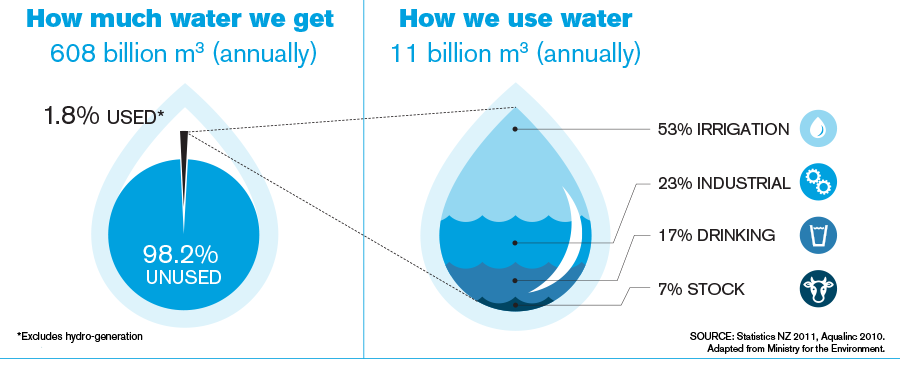The current New Zealand government’s goal is to treble Gross Domestic Product (GDP) to $60 billion by 2025. Irrigation will underpin a significant portion of this.
Irrigation is not just about farmers becoming profitable. Studies of the flow-on economic effects of irrigated agriculture show that for every dollar of wealth directly created from irrigation at least another three dollars are passed onto the wider community. It’s not just rural towns, but also larger urban centres such as Christchurch, Hamilton, Napier, Blenheim and Dunedin that benefit. In regions with a mix of high value irrigated crops this return increases to over six dollars coming back into the community for every dollar the farmer makes.

A 2013 Lincoln University study of the Selwyn and Waimakariri Districts showed that these predominantly irrigated rural economies contributed over 15% of Christchurch’s Gross Domestic Product (GDP).
Irrigation improves the quality of produce that can be delivered to market, and continuity of supply which benefits both the consumer and grower. Reliable irrigation allows a more diverse range crops to be grown. This generates greater investment as downstream suppliers (processing facilities, food manufacturers and farmers markets) see opportunities to add value around a wider range of produce.
Do you have a question about how the economy is impacted by irrigation? Contact [email protected] or connect with us on Twitter or Facebook.
Did you know?
There are currently around 720,000 hectares (Statistics New Zealand 2012) of irrigated land in New Zealand. The goal is to lift this to 1 million hectares by 2025.

